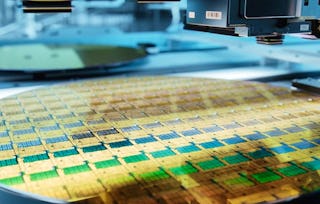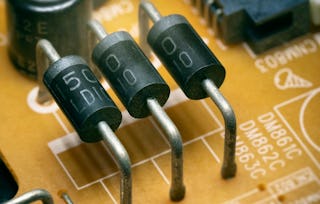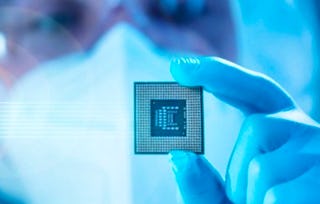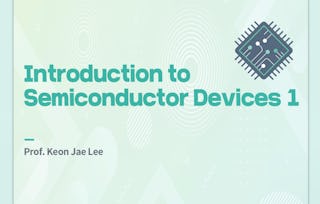In this course, we will explore the electrical properties of materials and classify different materials as conductors, semiconductors or insulators. We will look at some examples of conductors, semiconductors and insulators, and note the key factors that cause the differences in their electrical properties. We will use rudimentary band theory to show how temperature impacts the conductivity of the three classifications of materials. We will learn what causes the differences in electrical behavior of a p-type versus an n-type semiconductor in a p-n diode.

Electrical Properties and Semiconductors
Seize the savings! Get 40% off 3 months of Coursera Plus and full access to thousands of courses.

Electrical Properties and Semiconductors
This course is part of Materials Science for Advanced Technological Applications Specialization

Instructor: Terry Alford
3,578 already enrolled
Included with
44 reviews
Recommended experience
What you'll learn
Electrical properties of materials and, how/why semiconductors, insulators, and conductors are classified.
Details to know

Add to your LinkedIn profile
2 assignments
See how employees at top companies are mastering in-demand skills

Build your subject-matter expertise
- Learn new concepts from industry experts
- Gain a foundational understanding of a subject or tool
- Develop job-relevant skills with hands-on projects
- Earn a shareable career certificate

There are 5 modules in this course
Earn a career certificate
Add this credential to your LinkedIn profile, resume, or CV. Share it on social media and in your performance review.
Instructor

Offered by
Explore more from Mechanical Engineering
 Status: Free Trial
Status: Free TrialArizona State University
 Status: Free Trial
Status: Free TrialArizona State University
 Status: Free Trial
Status: Free TrialArizona State University
 Status: Preview
Status: PreviewKorea Advanced Institute of Science and Technology(KAIST)
Why people choose Coursera for their career

Felipe M.

Jennifer J.

Larry W.

Chaitanya A.
Learner reviews
- 5 stars
79.54%
- 4 stars
11.36%
- 3 stars
4.54%
- 2 stars
2.27%
- 1 star
2.27%
Showing 3 of 44
Reviewed on Feb 26, 2023
My experience of learning was amazing and i learn a lot that will definitely helful to add the value in my career in futureThank you.
Reviewed on Jun 24, 2024
got semiconductor properties cleared on conceptual level

Open new doors with Coursera Plus
Unlimited access to 10,000+ world-class courses, hands-on projects, and job-ready certificate programs - all included in your subscription
Advance your career with an online degree
Earn a degree from world-class universities - 100% online
Join over 3,400 global companies that choose Coursera for Business
Upskill your employees to excel in the digital economy

